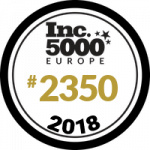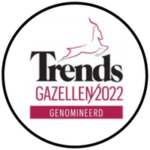Submit your questions to get advice from our professionals
Running a business in today’s market is no easy feat. We know it can be challenging to get timely and relevant advice that addresses your unique business needs and provides you with actionable insights.
That is why we have introduced our business advice column where you can ask our team all the questions you have about managing a procurement, finance or project management function successfully.
Our team of professionals are well versed in the best practices of their respective industries and are happy to share their insights and experience from their time helping businesses reach their full potential.
Please leave us your name, your email address, and your question and our team will get back to you with a response shortly.

Ask our experts: Question #1
As a relatively small company, we have struggled to adapt to the rapid changes in the post-COVID-19 market. Meeting demand on narrow timelines has turned out to be an almost impossible feat. With the pandemic forcing so many companies to make unforeseen purchases, can contracts be put out by private tender without following a tender procedure?

Ask our experts: Question #2
I have noticed that many businesses, including my own, struggled with ongoing tendering procedures when COVID-19 first broke out. How can I make sure my tendering process is not disrupted by crises in the future?

Ask our experts: Question #3
COVID-19 changed a lot of our processes and not always for the better. What are the key metrics (KPIs) to evaluate procurement performance fairly in this new structure?

Ask our experts: Question #1
As a result of remote working, I find myself having to outsource development projects that were usually done on-site and manage teams in different time zones. This is new territory for me and I would like to know what the most effective approach would be?

Ask our experts: Question #2
I run a small company that really felt the impact of the crisis. When it came time to decide what field to focus our time and resources on I was at a loss and I believe I made a few missteps. What should be my financial priority during a crisis?

Ask our experts: Question #3
What is the best way to improve my small business’ tolerance to financial risk?

Ask our experts: Question #1
My company plans investment strategies at the beginning of every quarter to ensure that we are on track to meeting our financial goals and that every arm is receiving the resources it needs. After the pandemic, the market seems more volatile than ever. In light of this, do we need to adjust our investment strategy or stick it out and stay on track with our goals?

Ask our experts: Question #2
Is PM enough to manage my organisation’s projects or do I need a PPM system?

Ask our experts: Question #3
Are the P3O and P3M3 assessment tools good baselines to evaluate a new PMO function?

Ask our experts: Question #1
As a relatively small company, we have struggled to adapt to the rapid changes in the post-COVID-19 market. Meeting demand on narrow timelines has turned out to be an almost impossible feat. With the pandemic forcing so many companies to make unforeseen purchases, can contracts be put out by private tender without following a tender procedure?

Ask our experts: Question #2
As a result of remote working, I find myself having to outsource development projects that were usually done on-site and manage teams in different time zones. This is new territory for me and I would like to know what the most effective approach would be?

Ask our experts: Question #3
My company plans investment strategies at the beginning of every quarter to ensure that we are on track to meeting our financial goals and that every arm is receiving the resources it needs. After the pandemic, the market seems more volatile than ever. In light of this, do we need to adjust our investment strategy or stick it out and stay on track with our goals?
For more digestible insights, visit our resources page for posts, whitepapers, eBooks, and videos.










